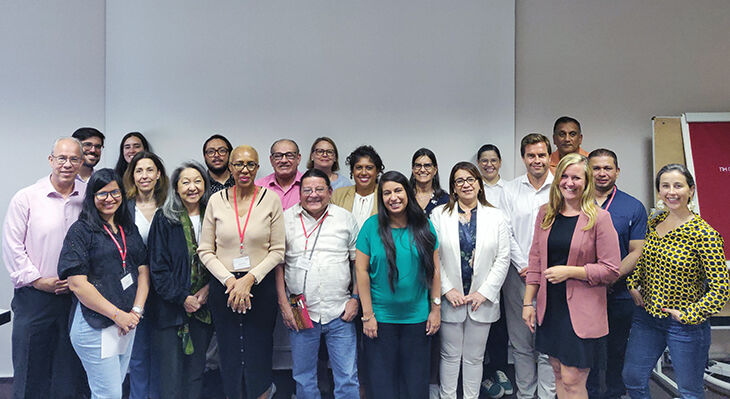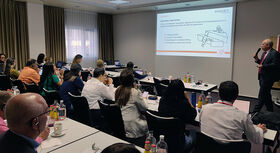"Is dual vocational education and training really worth it?"
04.08.2023
GOVET discussed these and other controversial issues with a delegation from the Inter-American Development Bank with high-ranking representatives from South and North America.

The Inter-American Development Bank (IDB), in cooperation with GIZ, invited a 15-member delegation to Germany to learn about the German dual training system, talk to the stakeholders involved and understand how dual training can be implemented successfully. GOVET presented the German vocational training system to the group on 18.07.2023, gave an introduction to agricultural apprenticeships programmes and discussed the benefits and costs of vocational training with the participants.
The delegates from Belize, Brazil, Honduras, Jamaica, Colombia, Panama, Peru, Suriname, Trinidad and Tobago and the USA were particularly interested in how the German dual VET system works, the stakeholders involved and the agricultural training programmes. The group included Ms Gorday de Villalobos, Minister of Education from Panama, Fayval Williams, Minister of Education from Jamaica and Henry Ori, Minister of Education from Suriname.

When looking at the costs and benefits of dual VET, the group was interested in how the costs are shared between the public and the private sector. The participants were surprised to learn that companies cover all the costs of in-company training, pay a training allowance and do not receive any tax reductions or other incentives from the goverment.
The work of the Federal Institute for Vocational Education and Training (BIBB) on cost-benefit analysis shows that companies consider a wide range of benefits, including the productive work of trainees and stronger ties to the employer. These and other positive factors contribute to companies' commitment to training. The most important aspect is the possibility of gaining qualified personnel at an early stage through dual VET and thus securing the future of the companies.